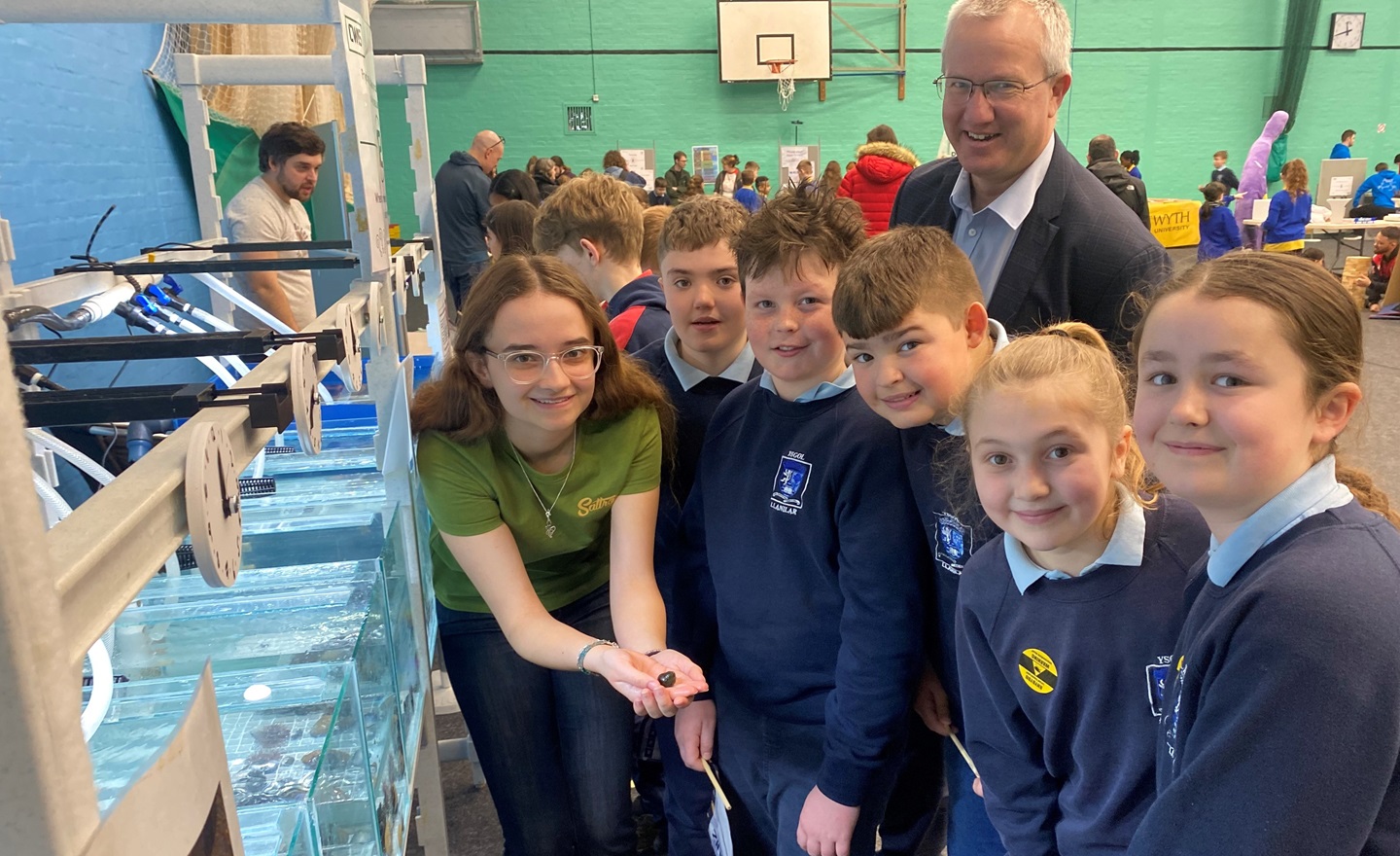Aberystwyth University celebrates British Science Week

Left to right: Life Sciences student Elsa Larrad discusses how animals spend their time underwater with Ysgol Gynradd Gymunedol Llanilar pupils Rhun Lloyd, Osian Price, Thomas Sion Morgans, Elin Evans and Cati Jones, in the company of Aberystwyth University Vice-Chancellor, Professor Jon Timmis.
12 March 2024
‘Time’ is the theme for this year’s three-day science festival (12 – 14 March) which is being hosted by Aberystwyth University this week.
How flowers keep time, how rivers change over time and how animals spend their time underwater, and sometimes out of it, are amongst the hands-on demonstrations at the event that forms part of British Science Week.
There are also opportunities to test lightning-fast reflexes, learn about sustainable energy, vaccines and how closely related humans are to bananas.
And for the computer games enthusiasts, there is even an exhibition of how computers and games have evolved since the late 1970s.
Around 1250 pupils from schools across mid and west Wales are expected to visit the popular annual event, which has become an established feature of the teaching calendar.
According to festival organiser, Nia Gwyndaf, Head of Student Recruitment and Widening Participation at Aberystwyth University, this year’s event has proved to be as popular as ever:
“It is a pleasure to welcome so many young people to Aberystwyth University again this year as part of British Science Week. Over many years, this event has earned its place on the teaching calendar and is an excellent opportunity for our academic and outreach staff to demonstrate how science is at the heart of some of life’s most spectacular phenomena and affects our everyday lives in so many positive ways. Hopefully, this will inspire a new generation of young scientists to consider careers in the world of science, technology, engineering and mathematics.”
The interactive stands were built by staff at the University’s departments of Life Sciences, Computer Science, Geography and Earth Sciences, Mathematics, Physics and Psychology and the demonstrations and experiments were staged by undergraduate and postgraduate students as well as academic staff.



